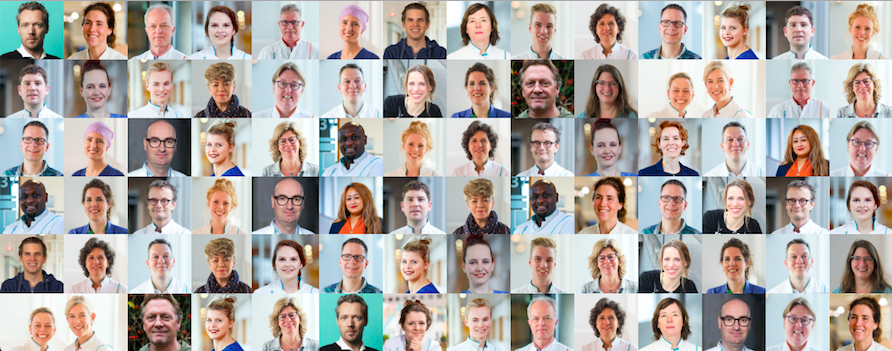Postdoc 'innovative prevention program against recurrence of depressive disorder'
Postdoc 'innovative prevention program against recurrence of depressive disorder'
You cannot apply for this job anymore (deadline was 22 Oct 2017).
Browse the current job offers or choose an item in the top navigation above.
Job description
Major Depressive Disorder (MDD) is a prevalent disorder that affects up to 20% of adults during their lives. One of the major problems of MDD is that it tends to recur in 50-80% of the patients. We recently obtained a prestigious grant from the Dutch Brain foundation (Program “The sooner the better/Snel beter behandelen”) to perform the SMARD-project, aiming to change clinical practice of recurrence prevention in the next 5 years.
In the SMARD-project we will develop and test the efficacy of a new prevention program against recurrence of Major Depressive Disorder by the application of mobile Smartphone technology. The key elements of this project are the development of algorithms to promote earlier detection (before clinical symptoms occur) and the change of underlying mechanisms of recurrence. Investigation of the psychoneurobiological changes that are induced by cognitive training and bias modification procedures. Amongst others we will apply advanced pattern recognition on big data obtained by the Smartphone.
As the study coordinator of the SMARD-study you will be a major contributor to these aims and working on these topics will be essential in your work. In these, you will be able to perform/learn advanced machine learning/network/connectomics analyses, partly on existing data-sets.
You will closely collaborate with the project leader (Dr. Eric Ruhe) and other study-team members (Prof. Aart Schene, Dr. Janna Vrijsen, Prof. Martien Kas, Dr. Jacob Vorstman and Prof. Catherine Harmer). The project-leader has excellent (inter-)national collaborations to further develop your skills. Apart from assisting in the conduct of the main study, you will be able to develop your own projects/line within this project. Therefore, application(s) for your own funding will be supported and assisted.
Tasks and responsibilities
- SMARD study coordination;
- Daily supervision of a PhD (to be appointed);
- Assistance in recruitment/fieldwork for the SMARD study;
- Data-analyses of new and pre-existing datasets (neuropsychology, Experience Sampling, fMRI) in recurrent Major Depressive Disorder;
- Publication of results as first or second author in top scientific journals;
- Obtaining funding for your own development and assist in fund raising for SMARD;
- Collaboration with other groups in the Radboudumc/Donders-Institute and (inter-)national research groups.
Specifications
- 25—29 hours per week
- Nijmegen View on Google Maps
Requirements
We are looking for a creative and enthusiastic, Dutch-speaking PostDoc who is interested in cognitive training, psycho-neurobiological research (with preferably experience with fMRI/network analyses) and has affinity with (recurrent) Major Depressive Disorder. This must be evident by an (almost) accomplished PhD in the (combination of) indicated field topic(s) or some years as a postdoc in this field. Experience with the Dutch healthcare system is preferred.
Conditions of employment
Fixed-term contract: 5 years.
Scale 10A: max. € 40116 gross income per year at full employment (incl. vacation bonus and end of year payments).
Employment will initially be for 0.7-0.8 fte decreasing to 0.5-0.6 after 2 years.
Employer
Radboudumc (university medical center)
Radboudumc strives to be a leading developer of sustainable, innovative and affordable healthcare to improve the health and wellbeing of people and society in the Netherlands and beyond. This is the core of our mission: To have a significant impact on healthcare. To get a better picture of what this entails, check out our strategy film.
Our key strength is medical life-sciences and clinical practice, with an impressive infrastructure comprising state-of-the-art technology platforms and (translational) research facilities. The Radboudumc is therefore uniquely positioned in the emerging Euregio and Dutch healthcare infrastructure to play a leading role in the new healthcare paradigm of prediction, prevention and personalised medicine.
The Radboudumc focuses on scientific health challenges of today, with an eye on emerging diseases of the future.
Read more about what it means to work at Radboudumc and how you can do your part.
Department
The project will be embedded in an interdisciplinary team of clinical psychiatrists, neuropsychologists and cognitive neuroscientists working at the Department of Psychiatry and the Donders Centre for Cognitive Neuroimaging.
The Department of Psychiatry is an academic organization combining top-level patient care, research, training and education. Research is multidisciplinary and embedded in two major Radboud research themes: Neurodevelopmental disorders (ADHD, Autism) and Stress-related disorders (Mood disorders, Addiction, Somatic co-morbidities).
The Donders Centre for Cognitive Neuroimaging (DCCN) aims to conduct cutting-edge fundamental research in cognitive neuroscience using complex neuroimaging techniques for measuring activity in the human working brain. Research themes cover central cognitive functions such as perception, action, control, decision making, attention, memory, language, learning and plasticity. English is the lingua franca at the centre.
Specifications
- Postdoc
- Natural sciences; Health
- 25—29 hours per week
- Doctorate
:fill(white)/logos/umcr-en-wide.png)
